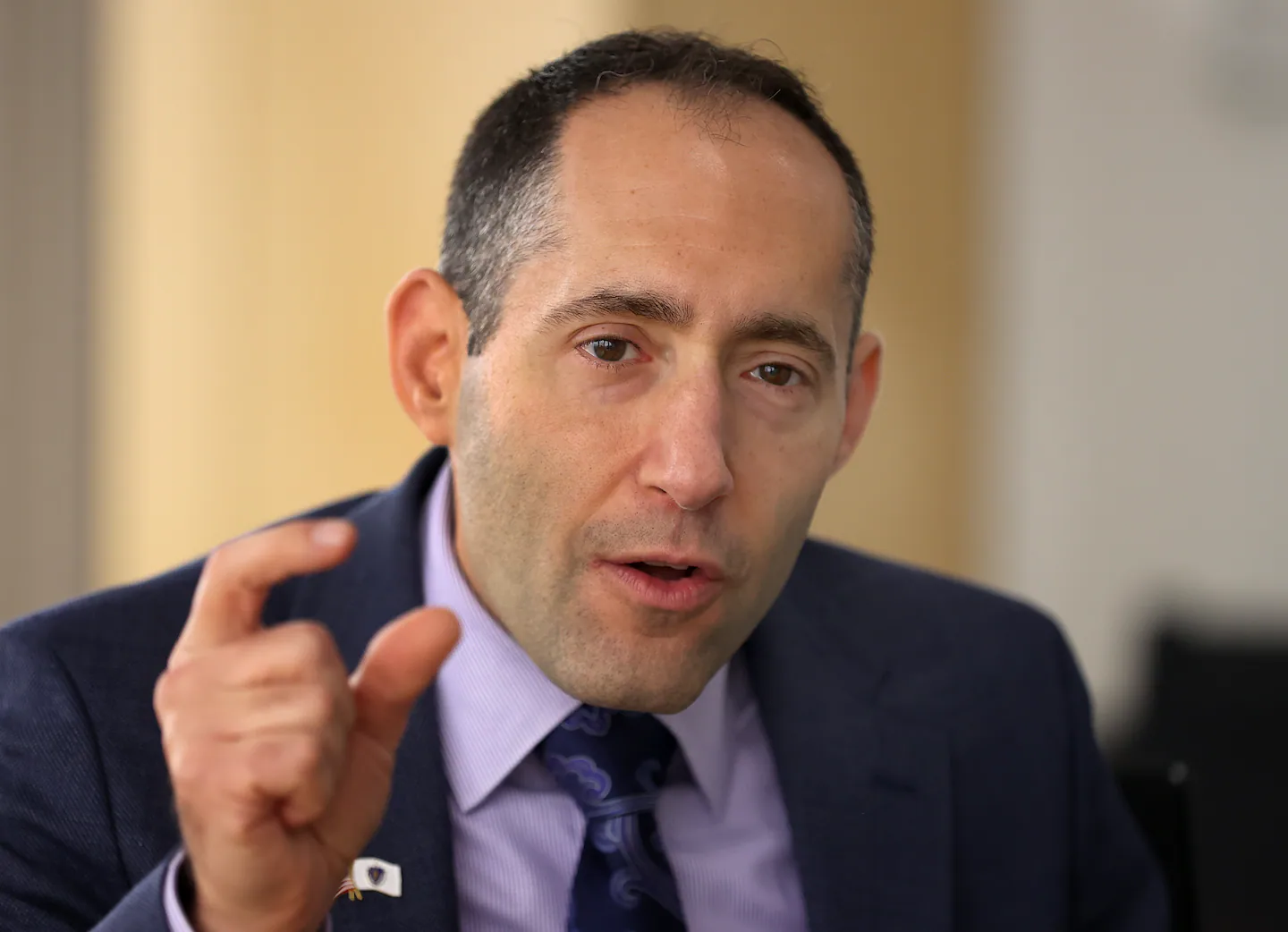
Paley began his career as an entrepreneur, first with a web-development firm in the early dot-com days, and later with a 3-D imaging business for the dental industry, Brontes Technologies. He launched the venture firm Founder Collective in 2009 with two former Brontes partners, to provide early-stage capital, or seed funding, to tech startups. The VC firm’s portfolio has included Uber and SeatGeek, along with local companies Whoop, Formlabs, and Drift.
Founder Collective also invested in PillPack, a Somerville-based pharmacy startup purchased by Amazon in 2018. That’s how Paley came to know Yvonne Hao, an executive at PillPack at the time. Hao was Healey’s most recent economic development secretary, but she stepped down in the spring. Paley was at the top of Hao’s short list of potential replacements. He wasn’t immediately sure he was ready to leave a job that he loved, until he thought more about the unusual opportunity to join the Healey administration and help the Massachusetts economy more broadly.
Paley sat down with the Globe recently to talk about his first few weeks on the job. (The following interview was edited for length and clarity.)
How has the switch to a government job gone after a career in startups and venture capital?
“As somebody who comes out of the private sector, it’s inspiring. I think a lot of the myths of what people say about folks who work in government, it’s like absolutely the opposite. It’s really great minds doing service for the public and really focused on how to make a difference; at least, that’s what I feel on our team every day, and from the governor and her team and lieutenant governor. … I feel an intensity that reminds me a lot of our small startups, even at this scale.”
Why is Hasbro’s arrival important for the state?
“Well, it’s important for people to see that we have one of the best creative economies in the world, one of the most innovative economies in the world, and one of the most innovative creative companies in the world sees that clearly and wants to be here.”
How is the push for the DRIVE legislation going?
“The governor rightfully, I think, feels an extreme sense of urgency around us. You can easily look at this and think, it’s research money, research doesn’t move that quickly. If it happens now, or if it happens some months from now, is it really going to make that big of a difference? I think the reality is, people are coming after our talent aggressively and our talent is our differentiation. It is our competitive advantage globally. … So it’s understandable if you’re running a major lab right now, and you’re looking at potentially shutting down a huge portion of that lab, and the state is saying, ‘We may be able to really help here, there is extreme urgency in trying to move quickly,’ that the person running that lab thinks, ‘OK, I don’t need to move that lab somewhere else, I don’t need to move that lab to America’s biggest rivals.’”
How do you think the “millionaires tax” (the state tax on high earners that took effect in 2023) is affecting our competitiveness?
“The real question on any tax policy is, how are we investing that money in the value proposition we are offering our citizens versus how does this make us possibly less competitive? You have to get a real return on that investment. So if we’re fixing our transportation infrastructure, we’re fixing our housing, and making Massachusetts a better place to build companies, to be more affordable for workers, there are value propositions there that even are meaningful to people in that top tax bracket.”
What about affordability issues and their impact on competitiveness?
“We are more affordable than some of the places people think of as a very attractive place to live, but we are way less affordable than many other places, and certainly way less affordable than we want to be, right? And in recent years, it’s become even more acute. The primary place we feel that is in housing. … So we’re making progress, but we need to drive hard on housing. Another way that the governor is doing that is by trying to meaningfully cut the review time for environmental review for new multifamily housing units. So if you’re meeting the state’s priorities, building multifamily housing and in other ways, in certain geographies, and you’re committing to our environmental goals, we will give you a fast track to cut the process down from 12 months to one month, is where we’re trying to go. So helping developers get housing online faster because they’re committed to the highest priority goals of the administration.”
What are the other big challenges you’re facing?
“The general climate of uncertainty for the business community is concerning. … We’re feeling a climate right now where it is hard to aggressively push forward as a business community, when there are so many open questions that are unknown and meaningful headwinds that feel like they’re undermining overall competitiveness at a national level.”
How do you translate your experience in venture capital to this job?
“At the end of the day, we have meaningful resources to contribute to the economic development of the state, but we have limited resources. … We are a small investor, much like a seed investor. My challenge to everyone at the DRIVE kickoff was, we have to think like seed investors. … What seed investors do is they put small dollars in and they look for opportunities where they believe meaningful milestones can be achieved that will attract capital elsewhere. As a state, we need to think about economic development that way. At a time where we have fewer and fewer resources, we have to be more and more resourceful.”